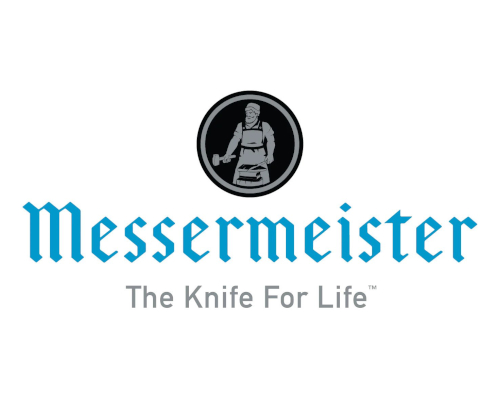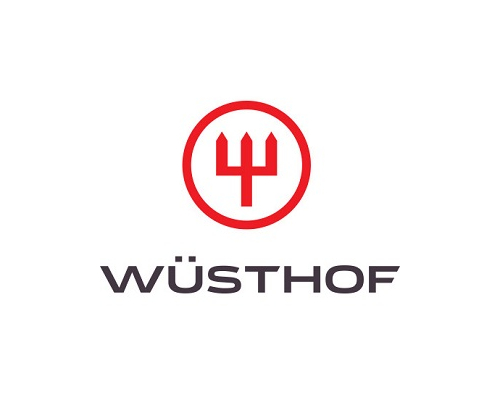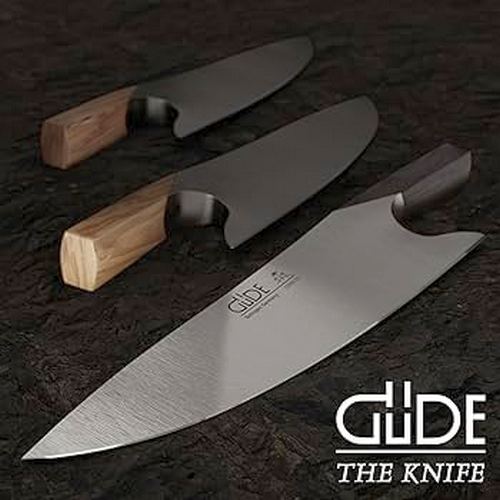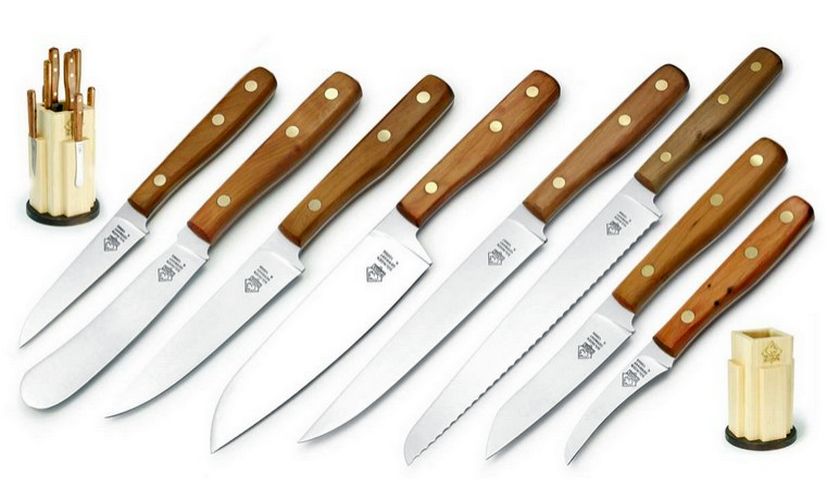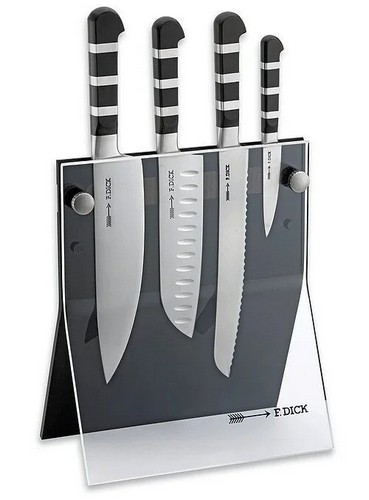KNIFE BRANDS FROM GERMANY
Hergestellt in Deutschland
Discover the legacy of German knife-making. From the precision-forged blades of Solingen, the trusted durability of brands like Wüsthof, Zwilling, and F. Dick - German kitchen knives are built to last and combine centuries of tradition with cutting edge performance.
The history of blades made in Germany spans over 2,500 years and is defined by a legacy of innovation, strength, and precision.
Here's an outline of the key milestones and developments:
Early Origins (c. 700–500 BCE):
Germanic knife-making traditions trace back to the early Iron Age during the Hallstatt period, when tribes in what is now Germany began forging simple iron blades. By around 450 BCE, under La Tène cultural influence, Germanic smiths were crafting stronger weapons using early pattern-welding techniques. These innovations laid the groundwork for a forging tradition that would endure for millennia.Roman Influence (1st–4th Century CE):
During prolonged contact and conflict with the Roman Empire, Germanic blacksmiths adopted and refined Roman metalworking techniques. The resulting fusion of tribal and imperial skills advanced the quality and variety of forged weapons, including short swords, spears, and utility blades.The Germanic Iron Age & Migration Period (c. 400–800 CE):
As the Roman Empire declined, Germanic tribes expanded across Europe. Their weapon-making skills evolved with the times, producing more refined tools for war and daily life. Archaeological finds from this era reveal a growing focus on steel composition, heat treatment, and decorative elements.Medieval Forging & the Rise of Solingen (9th–15th Century):
By medieval times, German blacksmiths were masters of their craft, producing swords, daggers, razors, scissors, and kitchen knives with exceptional quality. Solingen — thanks to its nearby iron ore, forests (for charcoal), and fast-flowing streams (for power) emerged as a major center for blade production. By the 13th century, Solingen blades were widely sought-after across Europe.Bladesmith Guilds:
In the Middle Ages, Solingen established bladesmith guilds which regulated and maintained high standards of craftsmanship in knife production. These guilds ensured the quality and reputation of German knives setting the foundation for excellence in the industry.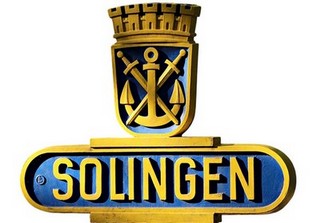
Solingen's Reputation:
Solingen earned the reputation across Europe as "The City of Blades" due to the exceptional quality of its knives and the sheer amount they produced. The city became renowned not only across Europe but also across the world for producing some of the finest knives available on the market.Industrialization and Technological Advancements:
With the onset of the Industrial Revolution in the 18th and 19th centuries, knife production in Germany underwent significant changes. Advances in technology such as the introduction of water-powered grinding machines and later steam-powered machinery enabled increased production and consistent quality. Solingen's knife manufacturers began using a specific type of steel known as "German steel" or "Solingen steel", which is a combination of carbon steel and other alloying elements.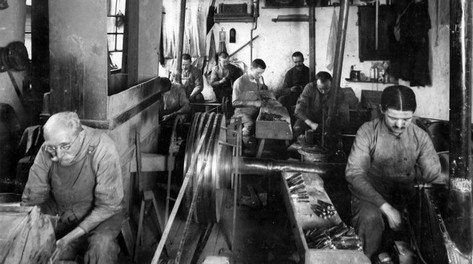
World War II Rebuilding:
The aftermath of WWII posed challenges for the German knife industry. Many factories were bombed beyond repair and resources became scarce. Ironically for the Allies, this destruction enabled some German knife companies to rebuild their factories with new, precision machinery. This and other rebuilding efforts due to the American aid, Marshall Plan, gave German knifesmiths a competitive edge over countries with outdated and antiquated factories.Current Era:
German knife manufacturers employ both modern technologies and traditional forging to produce the perfect blade. Innovations include improved handle designs for comfort and grip, the use of high-performance alloys and manufacturing techniques that deliver razor-sharp edges.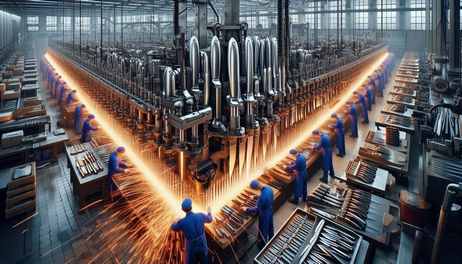
Global Recognition and Demand:
German kitchen knives have earned international recognition for their craftsmanship, strength and reliability. Professional chefs, cooking enthusiasts and home cooks alike value German knives for their ability to handle a wide range of culinary tasks, year in year out. Today, German-made kitchen knives continue to be trusted and sought after around the world reflecting the enduring legacy of excellence that defines the German knife-making tradition.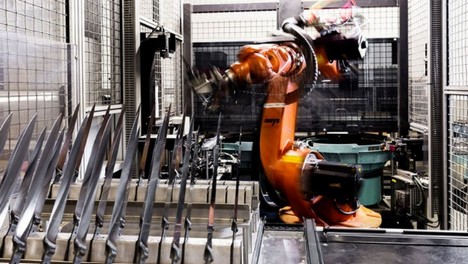
Browse our collection of the best known German kitchen knife brands — and compare to the history and quality of American kitchen knives here.



